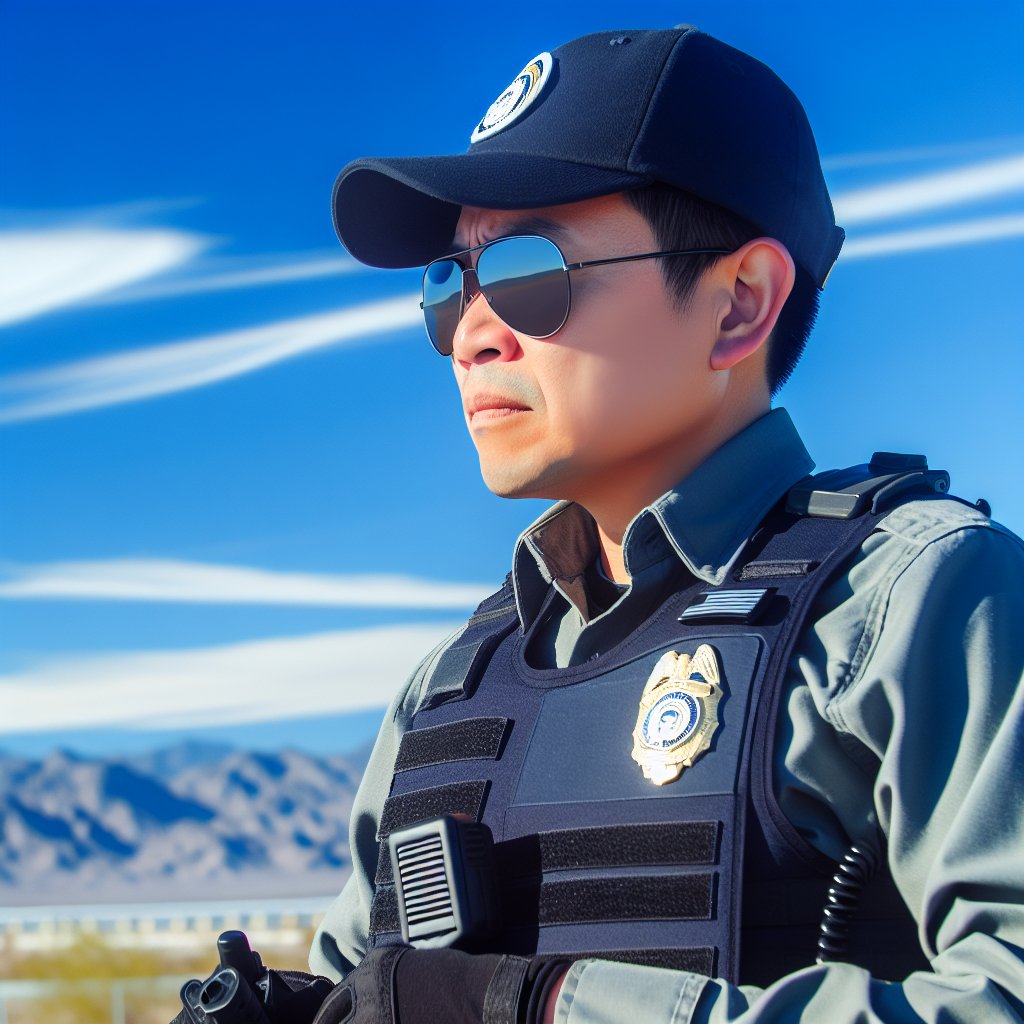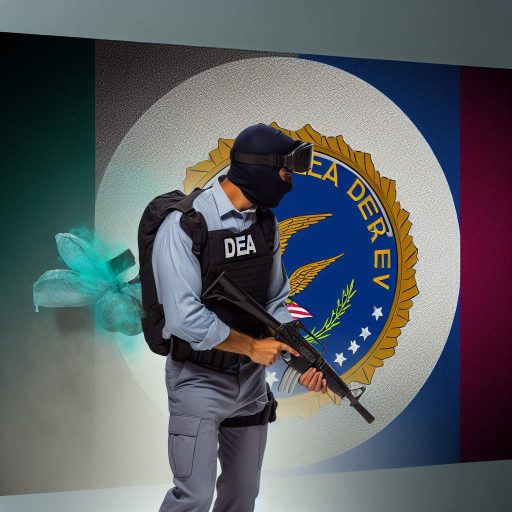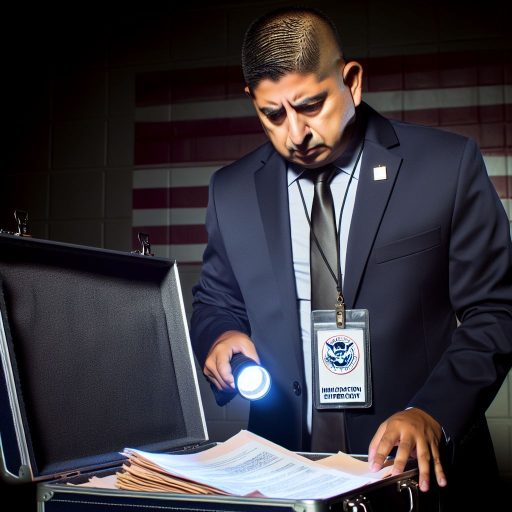Introduction:
A DEA agent plays a crucial role in maintaining border security.
This role is essential in preventing drug trafficking and other criminal activities.
Their responsibilities include monitoring suspicious activities.
They conduct investigations and collaborate with other agencies to secure the border.
The Drug Enforcement Administration’s Role in Border Security
The DEA plays a crucial role in maintaining border security by combating drug trafficking.
The DEA’s mission is to enforce the controlled substances laws and regulations of the United States.
Its aim is to bring to justice those who violate these laws and to dismantle the organizations behind drug trafficking.
The DEA was established in 1973, in response to the growing drug crisis in the United States.
Initially, the DEA focused on domestic drug enforcement but later expanded its reach to international drug trafficking organizations.
This shift in focus led to the DEA’s increased involvement in border security to prevent drugs from entering the country.
Primary Focus Areas of the DEA
The DEA collects and analyzes intelligence to identify drug trafficking networks operating along the border.
It works with other law enforcement agencies to interdict drugs before they reach the border.
The DEA collaborates with foreign counterparts to disrupt drug trafficking routes.
It also conducts investigations to gather evidence against drug traffickers and assist in their prosecution.
In summary, the DEA’s role in border security is essential for preventing the flow of illegal drugs into the United States.
When it comes to becoming a DEA agent, there are specific educational requirements and training programs that aspiring agents must complete.
Here is an outline of what it takes to become a DEA agent:
Educational Requirements
- Must have a bachelor’s degree from an accredited institution
- Preferably in criminal justice, law enforcement, or a related field
- Higher education such as a master’s degree may be beneficial
Training Programs
- Must undergo a background investigation and drug test
- Complete the DEA Basic Agent Training Program
- Participate in firearms training and physical fitness assessments
Specific Skills and Knowledge
- Strong communication and interpersonal skills
- Attention to detail and excellent problem-solving abilities
- Knowledge of federal laws and regulations related to drug enforcement
Physical and Mental Challenges
- Long hours and unpredictable work schedules
- Exposure to potentially dangerous situations
- High levels of stress and pressure to perform effectively
Aspiring DEA agents must be prepared to meet the rigorous demands of the job, both physically and mentally.
With the right combination of education, training, skills, and qualities, individuals can pursue a successful career in border security as a DEA agent.
Learn More: How CBP Officers Handle Emergency Situations
Transform Your Career Today
Unlock a personalized career strategy that drives real results. Get tailored advice and a roadmap designed just for you.
Start NowDaily Responsibilities:
DEA agents involved in border security operations have a wide range of day-to-day tasks and duties.
They gather intelligence through various sources such as informants, surveillance, and analyzing data.
DEA agents conduct surveillance on suspected drug traffickers and monitor their activities closely.
Collaboration with other law enforcement agencies is crucial for sharing information and coordinating operations.
DEA agents play a key role in intercepting drug shipments at borders, ports, and other entry points.
They apprehend individuals involved in drug trafficking by conducting undercover operations and making arrests.
DEA agents often work in partnership with customs officials, Border Patrol, and other agencies to enhance border security.
Monitoring drug trafficking routes and identifying key players in drug cartels are essential tasks for DEA agents.
DEA agents use advanced technology such as surveillance equipment and communication devices to track criminal activities.
Training and developing informants within drug trafficking organizations help DEA agents gather valuable intelligence.
- DEA agents involved in border security operations have a wide range of day-to-day tasks and duties.
- They gather intelligence through various sources such as informants, surveillance, and analyzing data.
- DEA agents conduct surveillance on suspected drug traffickers and monitor their activities closely.
- Collaboration with other law enforcement agencies is crucial for sharing information and coordinating operations.
- DEA agents play a key role in intercepting drug shipments at borders, ports, and other entry points.
- They apprehend individuals involved in drug trafficking by conducting undercover operations and making arrests.
- DEA agents often work in partnership with customs officials, Border Patrol, and other agencies to enhance border security.
- Monitoring drug trafficking routes and identifying key players in drug cartels are essential tasks for DEA agents.
- DEA agents use advanced technology such as surveillance equipment and communication devices to track criminal activities.
- Training and developing informants within drug trafficking organizations help DEA agents gather valuable intelligence.
Explore Further: Public Safety Officer Training: What to Expect
DEA agents have access to advanced technology and resources to enhance border security efforts.
One crucial tool in their arsenal is drones, which allow for aerial surveillance of remote areas.
Surveillance equipment such as night vision goggles and cameras help agents monitor suspicious activities.
Analytical tools like data software aid in tracking drug trafficking routes and patterns.
These resources are instrumental in gathering intelligence and evidence to combat illegal drug trade.
Despite their efficacy, there are challenges and limitations associated with using technology in border security operations.
Limitations include cost constraints, maintenance issues, and the constant evolution of smuggling tactics.
Additionally, data privacy concerns and ethical dilemmas may arise from the use of surveillance technology.
Agents must also contend with technical glitches and connectivity issues that can disrupt operations.
Transform Your Career Today
Unlock a personalized career strategy that drives real results. Get tailored advice and a roadmap designed just for you.
Start NowNevertheless, the benefits of leveraging technology far outweigh these challenges in the fight against drug trafficking.
You Might Also Like: Travel Tips from TSA Officers for Smooth Airport Security
Collaboration with Other Agencies:
Efforts to secure the border are strengthened by collaboration between the DEA and other law enforcement agencies.
Importance of Collaboration:
- Pooling resources and expertise enhances the effectiveness of border security operations.
- Coordination between different agencies allows for a more comprehensive approach to combating drug trafficking.
- Sharing intelligence helps in identifying and dismantling criminal networks operating across borders.
Examples of Successful Joint Operations:
- DEA agents working alongside Border Patrol successfully intercepted a large shipment of illegal drugs at the border.
- A joint operation involving DEA, local police, and Customs and Border Protection led to the arrest of key drug traffickers.
- Collaboration between agencies resulted in the seizure of millions of dollars worth of narcotics before they could enter the country.
Benefits of Sharing Intelligence and Resources:
- Early warning about drug smuggling activities allows for timely intervention to prevent the influx of illegal substances.
- Coordinated efforts lead to the disruption of drug cartels and organizations seeking to exploit vulnerabilities at the border.
- Combining resources enables law enforcement to deploy a more robust and targeted response against drug trafficking operations.
Collaboration among the DEA, Border Patrol, and other agencies is crucial in enhancing border security and safeguarding communities from the threats posed by illicit drug trafficking.
Gain More Insights: Wildland Firefighter Incident Command System

Challenges and Risks:
- Identifying the main challenges and risks that DEA agents face in their role in border security
- Discussing the dangers of confronting drug cartels and criminal organizations at the border
- Highlighting the physical, emotional, and mental toll of working in high-risk environments as a DEA agent
Main Challenges and Risks:
DEA agents operating at the border face a myriad of challenges and risks on a daily basis.
The first challenge they encounter is the vast and often unsecured border itself.
With thousands of miles to cover and limited resources, it can be difficult for agents to effectively monitor and control the flow of illicit substances crossing into the country.
This vast expanse also presents numerous entry points for drug traffickers, making it a constant game of catch-up for the agents.
Another significant challenge is the sophisticated and well-organized nature of drug cartels and criminal organizations.
These groups have access to advanced technology, vast resources, and are willing to use violence to protect their interests.
DEA agents must constantly adapt their strategies and tactics to stay one step ahead of these powerful adversaries.
This constant battle of wits and resources takes a toll on agents both mentally and emotionally.
Dangers of Confronting Drug Cartels:
Confronting drug cartels and criminal organizations at the border is a risky business.
These groups operate with impunity and will stop at nothing to protect their lucrative operations.
DEA agents often find themselves in dangerous and life-threatening situations as they attempt to intercept drug shipments and dismantle criminal networks.
The risk of violence is ever-present, and agents must always be prepared for the worst-case scenario.
In addition to physical danger, DEA agents also face emotional and mental challenges in their line of work.
Witnessing the devastating effects of drug trafficking on communities, families, and individuals can take a heavy toll on agents’ mental well-being.
The constant stress of being in high-risk situations, the pressure to succeed, and the trauma of witnessing violence and suffering can lead to burnout, PTSD, and other mental health issues.
Transform Your Career Today
Unlock a personalized career strategy that drives real results. Get tailored advice and a roadmap designed just for you.
Start NowThe Toll of Working in High-Risk Environments:
Working as a DEA agent in high-risk environments can have a profound impact on one’s physical, emotional, and mental health.
The job requires agents to be constantly on high alert, ready to respond to threats at a moment’s notice.
The stress of operating in dangerous situations, the long hours, and the demanding nature of the work can lead to physical exhaustion and fatigue.
Moreover, the emotional toll of witnessing the devastating consequences of drug trafficking can be overwhelming.
DEA agents often come face to face with the human cost of the drug trade, seeing firsthand the impact on families, communities, and individuals.
This exposure to trauma and suffering can lead to feelings of helplessness, frustration, and moral distress.
Impact and Success Stories:
When it comes to border security, DEA agents play a crucial role in disrupting drug trafficking activities.
Statistics and Data on Impact
- DEA agents have successfully intercepted millions of dollars worth of illegal drugs at the border.
- According to DEA reports, the seizure of drugs has significantly decreased the availability of narcotics in the streets.
- Statistics show that the number of drug-related crimes has decreased in areas where DEA operations are active.
Success Stories of DEA Operations
- DEA operations have resulted in the arrest of key members of drug cartels, disrupting their operations.
- Recently, a DEA operation led to the seizure of a large shipment of fentanyl, preventing a potential public health crisis.
- DEA agents have collaborated with local law enforcement to dismantle drug smuggling networks operating at the border.
Long-term Effects on Border Security
- The DEA’s efforts have had a lasting impact on improving border security by reducing drug trafficking activities.
- By disrupting drug cartels, the DEA has contributed to making the border safer for both citizens and law enforcement.
- The long-term effects of DEA operations include a decrease in violence and crime associated with drug trafficking.
The DEA’s role in border security cannot be overstated.
Their dedication and hard work have led to significant impacts on disrupting drug trafficking and improving public safety at the border.
Role of DEA Agents in Border Security
DEA agents play a critical role in maintaining border security.
They actively monitor and intercept drug trafficking activities.
Their dedication and sacrifices are commendable.
They work tirelessly to protect the country’s borders from illegal drugs.
It is imperative that we appreciate and support the DEA agents.
Their unwavering commitment safeguards our nation and communities.
Let us acknowledge the crucial role they play in ensuring our safety.
We owe them our gratitude for their efforts in border security.
Additional Resources
The Cost of Immigration Enforcement and Border Security …
Police and Detectives : Occupational Outlook Handbook: : U.S. …




